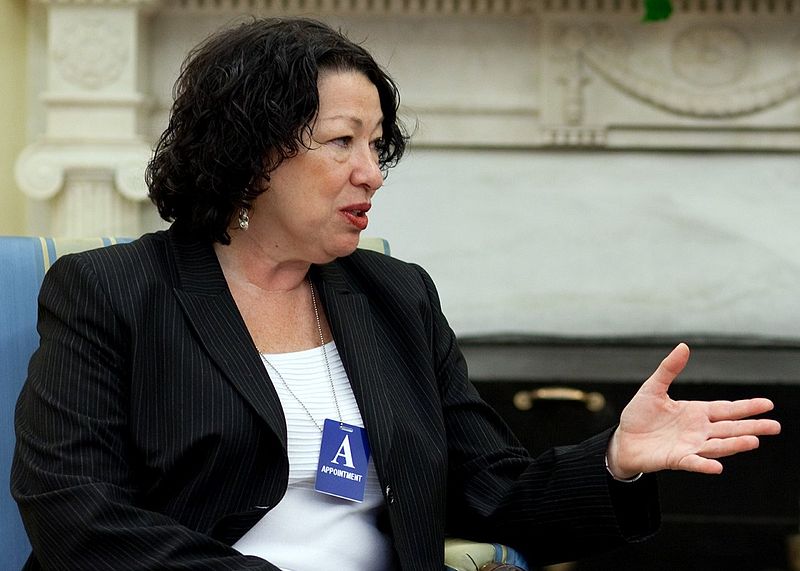United States Associate Supreme Court Justice Sonia Sotomayor spoke at the University of Alaska Fairbanks Sunday. Sotomayor, the first Latina appointed the nation’s highest court, addressed a capacity audience in Fairbanks.

Sonia Sotomayor shared a very human perspective on the Supreme Court. The 62-year-old traced her path to the nation’s highest court, from her New York City upbringing, where she said she took charge of her life at a young after being diagnosed with diabetes and given an uncertain health future.
”I understood then that I had to live every minute of my life as fully as I could,” Sotomayor said.
Sotomayor went on to become an outstanding student, graduating from Princeton and Yale, and working her way through the legal system, ultimately being appointed to the Supreme Court by President Obama in 2009. She said she initially felt like an outsider, but learned from other justices, including John Paul Stevens who she said emphasized the importance of speaking out.
”Because there is a pull in a group setting, in a collective, for people to try to agree with each other. And that’s not unimportant. But every once in a while, you have to make a statement because it’s important to say.”
The opposite of a stern judge, Sotomayor spent the hour and half UAF Summer Sessions event walking around the Davis Concert Hall, answering questions, while shaking hands and sometimes hugging and taking pictures with audience members.
Sotomayor fielded a range of questions submitted over the summer. Asked what the most important attribute is for a high court justice, Sotomayor singled out curiosity.
”Experts in the sciences and medicine and every human endeavor come to court to ask us to answer their questions. And the only way we can do that is, do we have sufficient curiosity.”
Sotomayor was also asked about her experience as a woman on the male dominated high court. She reiterated a story told to her by fellow justice Ruth Bader Ginsberg.
“There’s a lot of moments I say things at conference, and it’s like I’m not heard. And somebody will come after me, and they say exactly the same thing and all of a sudden it’s brilliant.”
Sotomayor emphasized the importance of women projecting their voice like an actor or singer, and being assertive, noting she’s considered tough.
”I’m a pussycat inside. So it’s really hard when people say they’re scared of me because I can’t understand why. At least myself I can’t understand why. But I do think that I’ve been blessed with an assertive personality.”
Asked to give advice to Alaska Native students entering university, Justice Sotomayor pointed to the significance of shared values, saying there is nothing innately wrong with the majority.
”It is a majority because that’s the way life is. They’ve been here. They grew this community. They’ve created this world. Learning about it will teach us some things that will be valuable for our Native villages or for our Native homes. And some things we can look at and say ‘You guys got it wrong.'”
Justice Sotomayor also met with students while at UAF.
Dan Bross is a reporter at KUAC in Fairbanks.




